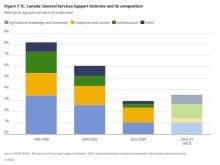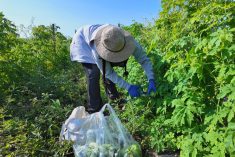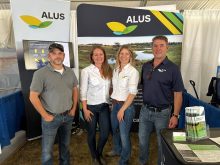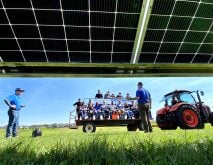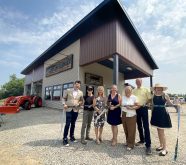A new living lab is being created in Ontario with funding assistance from Agriculture and Agri-Food Canada.
Led by the Ontario Soil and Crop Improvement Association (OSCIA), the project will see an investment of up to $9.2 million over five years from the federal government under the Agricultural Climate Solutions Living Labs program.
Why it matters: The funding builds on previous success with Living Labs projects that accelerate the agriculture sector’s response to climate change through developing and testing new ideas in real-world conditions.
Read Also

New Iridium technology helps block GPS spoofing
A tiny new chip will allow Iridium’s Positioning, Navigation and Timing (PNT) signals to be received much smaller devices, create a backstop against Global Positioning Systems (GPS) spoofing.
Total funding rises to $12 million over five years once industry contributions are considered and will support approximately 50 on-farm trial demonstrations across Ontario. Planned projects will explore methods to store carbon, reduce emissions and evaluate beneficial management practices around livestock and cropping systems, nitrogen use, manure storage, landscape and grazing management.
Tim Louis, Member of Parliament for Kitchener-Conestoga, announced the funding July 20, on behalf of federal Agriculture and Agri-Food Minister Marie-Claude Bibeau, during an OSCIA event at the Grand River Agricultural Society.
Alan Kruszel, a provincial director with the association, said linking researchers and farmers is critical and that was challenging to do before the Living Lab initiative launched in 2020. Not all research made it into farmers’ hands.
“With farmers working directly with the researchers, we can ask the tough questions,” he said. “The researchers can do the research and get us the answers we need to move ahead in a more environmentally sustainable way, and economically sustainable as well.”

Kruszel said it is heartening that the federal government has acknowledged the importance of maintaining a sustainable agricultural sector because “farmers can’t afford to do everything for free.”
“Farming is a business. We need to be able to make money to continue to produce food, fibre and fuel for all Canadians, and it must be done profitably. This whole program is going to really help move that forward.”
Tracey Ryan, OSCIA applied research coordinator, said researchers and farmers approach potential solutions with curiosity. Researchers want perfection, and farmers work with trends, so the goal is to find middle ground. Unlike the initial living lab projects, this funding will support innovation-led research and adaptability at the farm level.
Pam Joosee, AAFC senior soil and nutrient specialist, said researchers and farmers will work outside their respective comfort zones. That might require leaving the rigorous scientific process within labs and research plots in favour of real-time working farm trials.
“Science can take a long time, and we’re looking for shorter-term benchmarks, because the decision-making timeframe is very different for farmers versus scientists.” said Joosee.
Janet Harrop, dairy farmer and Wellington Federation of Agriculture president, said the new Living Lab promotes a more inclusive approach to climate mitigation and reduces research duplication.
Wellington County climate change and sustainability manager Karen Chisholme said being a Living Lab collaborator provides greater insight into farmers’ struggles in adopting environmentally friendly practices, especially as rural municipalities dig into the connection between agriculture and climate change.
Wellington County’s approach includes a recent circular economy project partnership with the City of Guelph and an experimental pilot that helps farmers develop small-scale projects. Dufferin and Grey counties also launched trials.
The next few months may see producers and researchers develop ways to collect baseline data so projects can launch early in 2024, said Ryan.
AAFC said it will announce living labs in two more provinces in the coming weeks. Along with the new lab in Ontario, there will then be 14.






